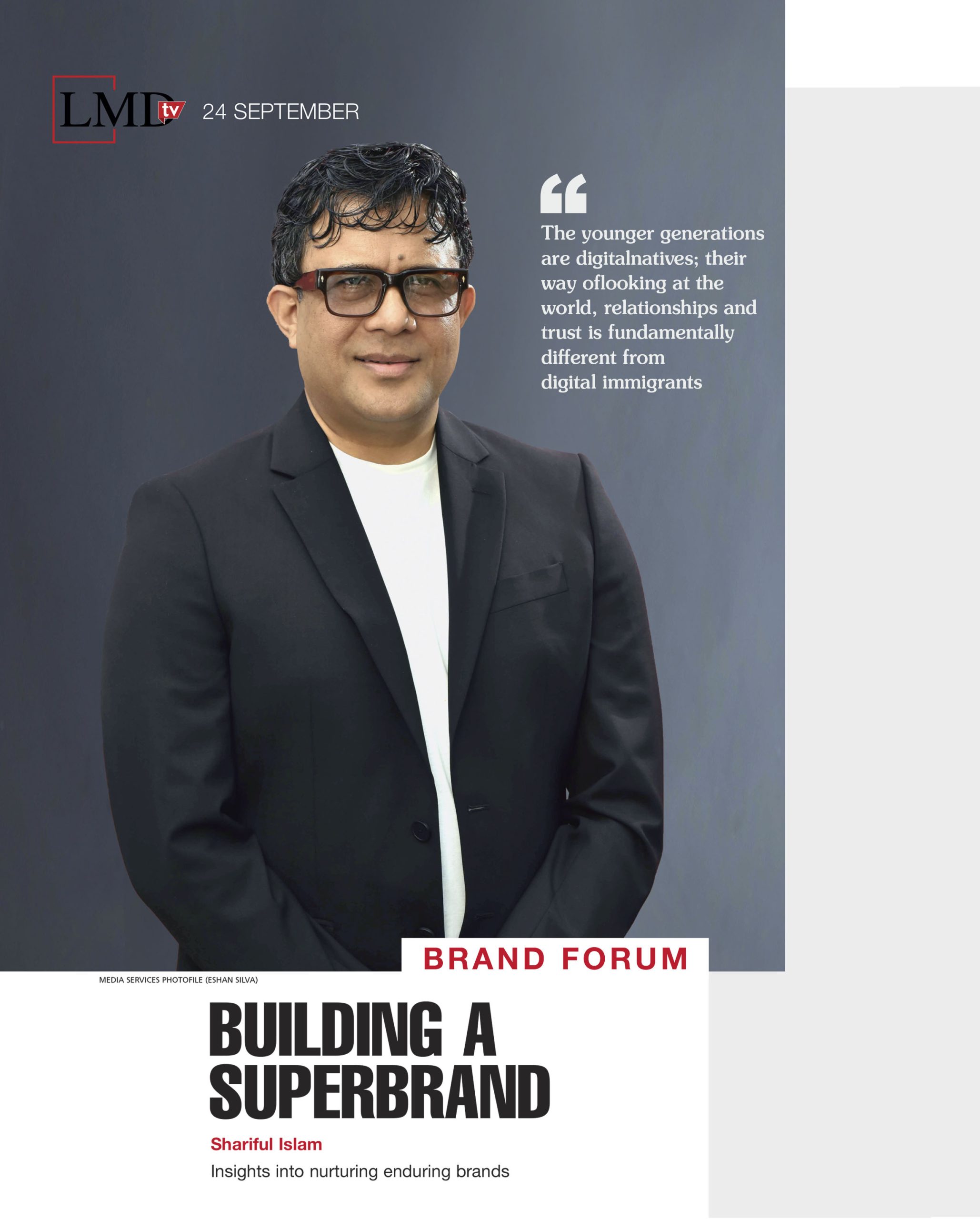LMDtv 3

“Brands exist in the minds of the consumer, which means society, culture and people are an integral part of how brands evolve,” stated the Chairman of Superbrands Sri Lanka Shariful Islam, during a recent LMDtv feature.
He highlighted two driving forces in the context of the evolution of branding: timeless fundamentals and disruptive technology.
Islam explained: “At the core of branding lies the necessity to know and understand the consumer’s context. Brands need to solve a problem but since technology is disrupting everything, only those who get both strategy and tech right are creating truly superbrands.”
Authenticity and responsibility aren’t optional. He remarked: “Consumers today look for brands to be socially responsible, transparent and consistent in delivering what they promise. That’s the crux of it.”
Many brands struggle because they cling onto outdated approaches, as Islam noted: “The consumer’s changing dynamics force brands to stay relevant. It’s not enough to offer a good product; you must create associations, meaning and values.”
Generational shifts add to the challenges at hand.
As Islam explained, “most brand managers are millennials or Gen X, not Gen Z or Gen Alpha. The younger generations are digital natives; their way of looking at the world, relationships and trust is fundamentally different from digital immigrants.”
He warned that failing to understand this gap risks alienating them, and added: “Their reliance is on communities and influencers, not traditional media. One wrong move and you’re out of their recommendation set.”
Yet, Islam views this shift as positive: “Gen Z is much smarter with better clarity. They demand responsibility and transparency, and are pulling us back in the right direction. The future relies on them, and our job is to understand and facilitate the process.”
Against this backdrop, the return of Superbrands to Sri Lanka is timely.
“Sri Lanka has amazing brands and the business environment has evolved considerably. The economy is getting back on track and the direction of growth is apparent. So launching Superbrands now can’t be more opportune,” Islam affirmed.
Recognition, he stressed, is about more than prestige: “A brand isn’t created by the CEO alone. It is executed by hundreds or thousands of people whose hard work deserves acknowledgment. When recognition comes from an international platform, it is very powerful.”
The Superbrands process is rigorous. “We go through four layers. It begins with research and shortlisting, then council members score brands against five parameters – heritage, relevance, strategy, quality and performance, and top of mind awareness,” Islam explained.
Scores are validated regionally and globally before final approval. “Only then are brands invited to be Superbrands for a year,” he revealed. The annual review keeps companies sharp, as they can’t afford to sit back and claim Superbrand status. Things move fast so they must remain relevant.
Islam believes that the impact goes beyond individual companies: “Our approach isn’t merely to recognise brands but to bring out their stories – why they stand out, their hard work and strategies behind them so that others are inspired. We feel this can become a movement that pushes the private sector and professionals forward.”
He was equally enthusiastic about the partnership with LMD, noting that “every business leader we’ve spoken to said the best thing that we have done is to partner LMD.” Islam added: “The publication has credibility, strong ethics and principles – it’s a gold standard and we will be able to leverage this partnership tremendously.”
The return of Superbrands to Sri Lanka represents both recognition and responsibility. He observed: “It shows the world that these brands belong to the best of the best. But it also urges Sri Lankan businesses to stay relevant, responsible and aim higher, year after year.”

